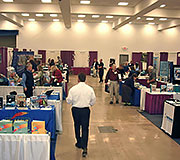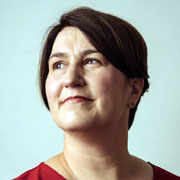Michelle Chadwick
District 2 Director

Nominee: Michelle Chadwick
Biographical Information on Nominee
Michelle Chadwick is a veteran professional with twenty-five years of experience. An active voice for student-centered, inquiry-based science education, she spent three years supporting educators in the science classroom as an inclusion teacher, followed by eighteen years teaching Biology, Advanced Placement Biology, Chemistry and Physical Science at the secondary level. Michelle has worked at the district level for the last four years. As the Onslow County Coordinator of Academic Innovation and Gifted Services: k-12 Science, she is the science curriculum contact for teachers in that area. In addition to helping teachers identify and acquire appropriate resources for science instruction and conducting professional development programs, Michelle focuses on the planning and operation of numerous science enrichment events including Science Olympiads at the elementary, middle and high school levels and district Science and Engineering Fairs.
Michelle holds a Bachelor of Science in Biology and Masters in School Administration and Curriculum. She also holds AIG Licensure. In 2011 Michelle received recognition as the Northside High School Teacher of the year and was a finalist for the district outstanding educator award. She received the NCSTA 2016 Award for Exceptional Service to Science Education in North Carolina.
Mission Statement
If elected as the NCSTA District 2 Director, I will be focused on reaching more teachers in and out of the classroom. I recognize the needs and concerns of science teachers and feel that working through NCSTA I can help area teachers find the resources they need, assist with the improvement of classroom practices and clarify to school communities the need for a strong inquiry-based science curriculum. Science education has slowly taken a backseat in many districts because the mandated state assessments for science have been reduced to only the 5th grade, 8th grade, and Biology. That means that science is emphasized in biology and in two grade levels rather than comprehensively across all science subjects and in all grades. Class sizes have increased and the amount of time our children are being exposed to scientific or engineering practices has diminished. We need to raise the awareness on the importance of science and how easily all disciplines can be integrated with scientific enterprise to create a rich learning environment. Engaging students through a vigorous curriculum in science is very important. Science educators need to have a support system that will enable them to know who is available to share ideas with and ask questions. For our students to become lifelong learners, we need to strive for everyone to have an appreciation, an understanding and an informed level of skill after 13 years of science instruction. Working through NCSTA I can help accomplish this goal.


